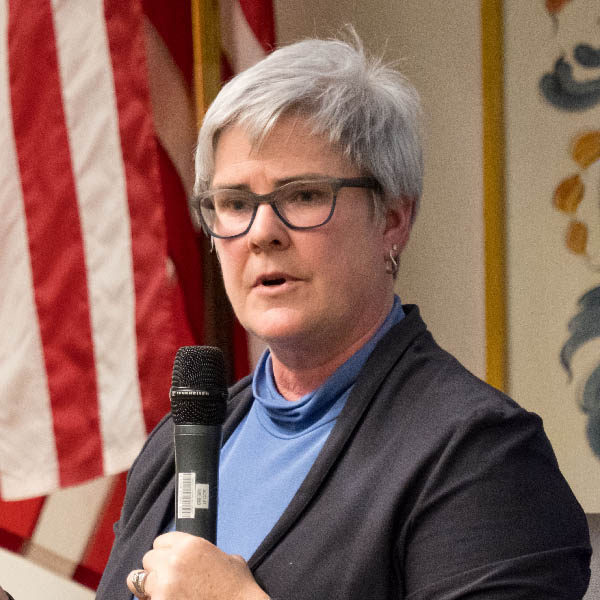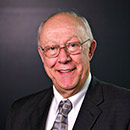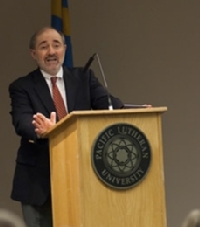Page 126 • (2,470 results in 0.028 seconds)
-

Margaret Witt ’86 Margaret Witt ’86 https://www.plu.edu/resolute/fall-2018/wp-content/uploads/sites/27/2018/09/margaret-witt.jpg 600 600 Logan Logan https://secure.gravatar.com/avatar/df88b9152697d03169d961f6b1582ddd?s=96&d=mm&r=g September 18, 2018 October 5, 2018 Maj. Margaret “Margie” Witt is a decorated, 20-year veteran of the U.S. Air Force who made history in 2010 with her successful constitutional challenge to the law known as “don’t ask, don’t tell” (DADT), which prohibited gays and
-

Jewish people? What kinds of commitments have those statements made? And how are those commitments being carried out? Dr. Darrell Jodock is the Drell and Adeline Bernhardson Distinguished Professor of Religion Emeritus, Gustavus Adolphus College, St. Peter, Minnesota, and founder of the Institute for Jewish-Christian Understanding at Muhlenberg College. Professor Jodock teaches in the area of Lutheran Studies. His teaching interests include Lutheran Studies, Christian-Jewish Relations, History of
-
Brenda Llewellyn Ihssen Professor of Early and Medieval Christian History Full Profile 253-535-7237 bll@plu.edu * On Sabbatical
-
Samuel Torvend '73 Associate Professor of European Religious History Full Profile
-
Benson Research Fellows Study Terminal Illness By Michael Halvorson. Each year, the Business and Economic History program at Pacific Lutheran University awards summer research fellowships for innovative work that aligns with the mission of the University. Sarah Cornell-Maier, Benson Fellow In 2018, a student-faculty research team led by Sarah Cornell-Maier and… July 6, 2018 Business and Economic HistoryMark MulderSarah Cornell-MaierTerminal illness research
-

) and where we were headed: the “Yes on I-591” rally in Bellevue, Wash., which was anti-gun-regulation. She also told us what we were looking for: color. (“Color” is a term used in journalism to describe what makes the story more human-interest-related. The same word is used to describe the sports anchor who accompanies play-by-play: Color commentators give expert analysis, player history and light anecdotes.) As The Mast’s A&E Editor, I knew finding color wouldn’t be a problem. Making stories PLU
-
Dinner Break7 - 8:30 p.m. | The Importance of Migrant Voices and Perspectives The 44th annual Walter C. Schnackenberg Memorial Lecture Speaker: Fredy González, Assistant Professor of Latin American History at the University of Colorado – Boulder Introduced by Timothy O’Neill, Visiting Assistant Professor of History Location: Scandinavian Cultural Center Friday, March 99:05 - 10:20 a.m. | Homo Itinerans: An Anthropological Perspective on Global Mobility Speaker: Alessandro Monsutti, Head of
-
PNW’) ENGL 217: Topics in Literature (4) (when the topic is Native Literatures) ENGL 288: ST: Indigenous Literature of North America (4) HISP 322: Latin American Cultural Studies (4) HIST 333: Colonization and Genocide in Native North America (4) HIST 348: Lewis and Clark: History and Memory (4) HIST 351: History of Western and Pacific Northwestern U.S. (4) NAIS 230: Indigenous Creation Narratives of the Americas (4) NAIS 244: Environmental Justice and Indigenous Peoples (4) NAIS 286: Sámi Film
-
this is in the context of studying natural history and conservation issues. BRAZIL, ARGENTINA Cosmopolitanism: Citizenship in a Globalizing World Students and faculty together conducted an investigation of the impact of globalization upon two major world cities, Sao Paolo, Brazil, the largest city in Latin America, and Buenos Aires, Argentina, arguably the most cosmopolitan city in South America. And, they investigated the concept of cosmopolitanism from a philosophical perspective and its
-

October 7, 2011 Benson lecturer poses question: Would slavery have ended without the Civil War? If the Civil War didn’t end slavery, something else would have, said history professor Peter A. Coclanis. By 1861 slavery was dying out,” Coclanis said , who teaches at the University of North Carolina in Chapel Hill. Slavery probably would not have survived much longer. Coclanis presented a lecture entitled, “Would Slavery Have Survived Without the Civil War? A Counterfactual Analysis,” on Monday
Do you have any feedback for us? If so, feel free to use our Feedback Form.


